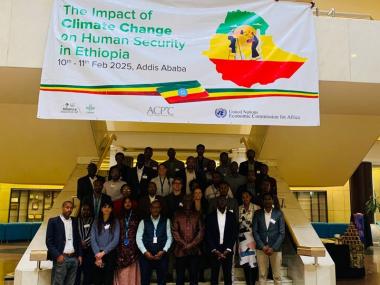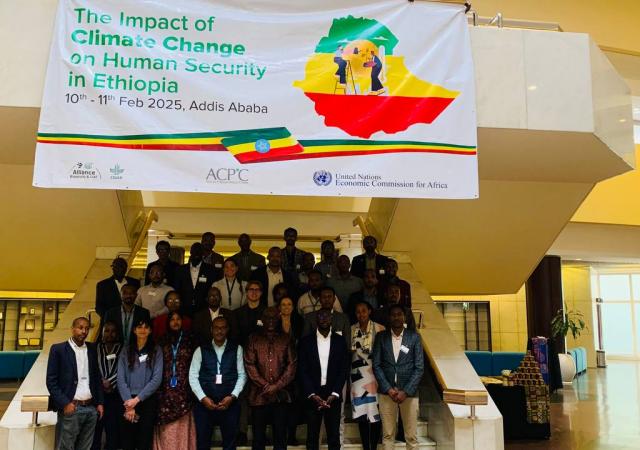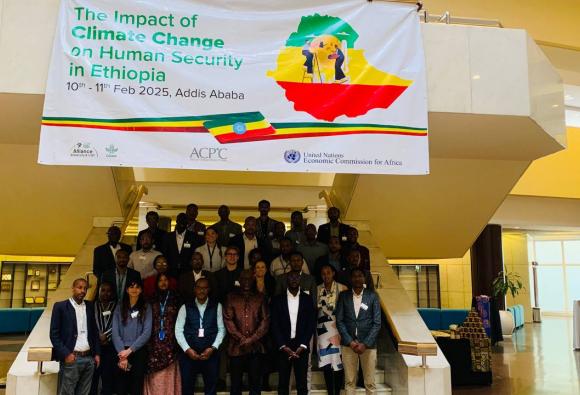Workshop Report
Background
Climate variability and extreme events in Ethiopia are increasing pressure on natural resources, with negative impacts on food, land, and water systems. As communities continue to face rising temperatures, extreme weather events, changes in resource endowments and resulting resource competition, several facets of human life are being impacted. Among the most critical are livelihoods, economies, socio-cultural issues, health, and food and water security, to mention but a few. Compounding these challenges, some regions also grapple with influxes of refugees and/or internally displaced peoples (IDPs), which can sometimes exacerbate tensions between displaced populations and host communities. Additionally, vulnerabilities arising from climate change and conflict that differ across gender, age, and livelihoods further complicate the situation and underscore the need for targeted responses.
Recent evidence suggests that the adverse impacts of climate change on food, land and water systems are altering the dynamics of interaction between and within social groups, making community resilience and social cohesion more challenging to sustain, particularly during instances of competition over resources. Community resilience and social cohesion are achieved when communities, institutions, and governments can effectively mitigate the role of climate change in exacerbating human vulnerabilities. This requires collective and cooperative solutions among a range of different stakeholders, including communities, government, humanitarian/development actors, and the private sector, to address the nexus between climate change, human vulnerabilities, peace, and social cohesion.
Recent developments in climate change policies and operational frameworks of many East and Horn of African countries, coupled with regional initiatives and mechanisms, present a window of opportunities to leverage climate resilience and adaptation as means for conflict prevention and peacebuilding. Regional and multilateral cooperation and resilient networks are key towards this aim. In view of this, we aim to align with current efforts of the African Union (AU) to develop a Common African Position on Climate, Peace and Security and IGAD- CAEP’s Regional Climate Adaptation Strategy 2023-2030, where climate, peace, and security issues were included, by providing a space to discuss the national and transboundary risks that the impacts of climate variability and change pose to social cohesion, peace, and community stability.
Objectives
This 2-day workshop’s objective is to develop a shared understanding of the role of climate in exacerbating root causes of vulnerability and human security risks in Ethiopia and to identify potential solutions that mitigate this nexus. This will be done through the co-identification of challenges, a common vision for the future, and possible pathways to meet goals, following the “Three Horizon Method”. This method seeks to understand the current situation (Horizon 1), future goals (Horizon 3), and means to achieve those goals (Horizon 2).
Document
Presentations
Climate Security overview presentation - Radhika Singh
Research Insights on Climate, Peace, and Security in Ethiopia - Brenda Chepngetich and Victor Villa
Climate and Human Mobility Preferences for Durable Solutions for Climate and Conflict IDPs
Disaster impact, Financing and Statistics - Habtamu Alemayehu
The Impact of Climate change on refuges IDPs and Host communities
Climate, Peace and Security Workshop Ethiopia Three Horizons Framework - Victor Villa
Related Links


